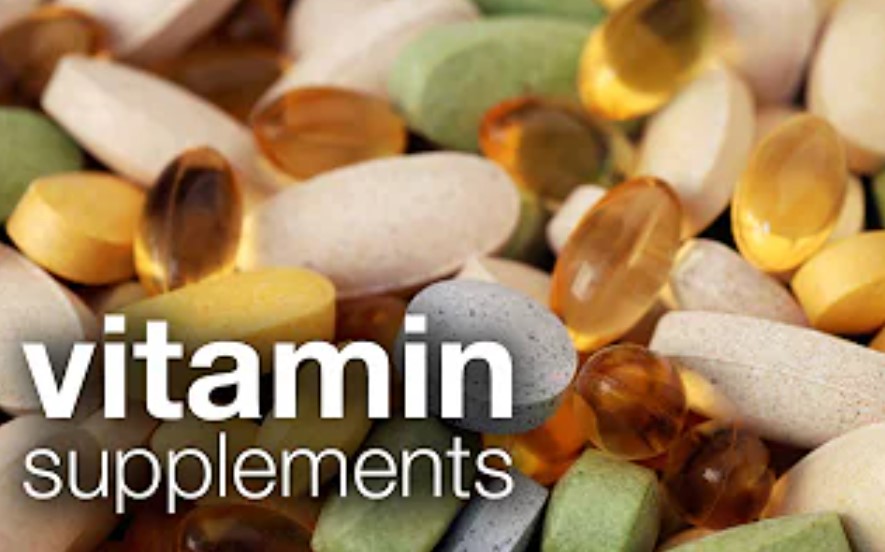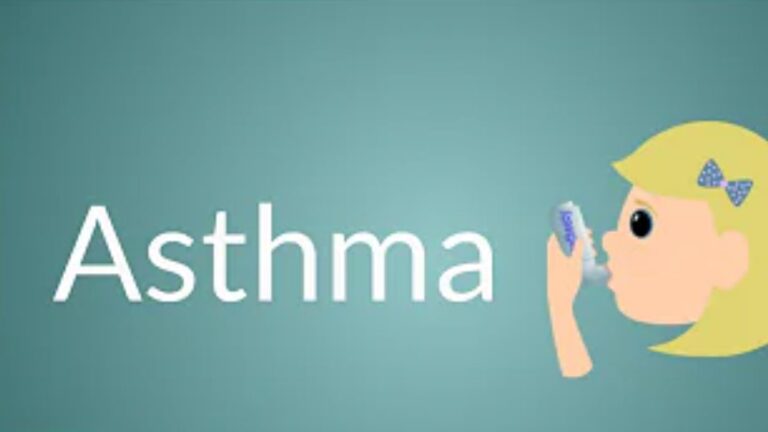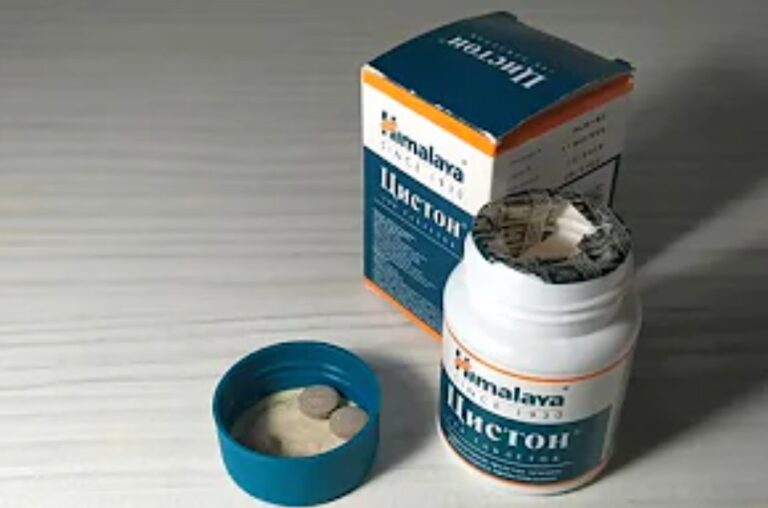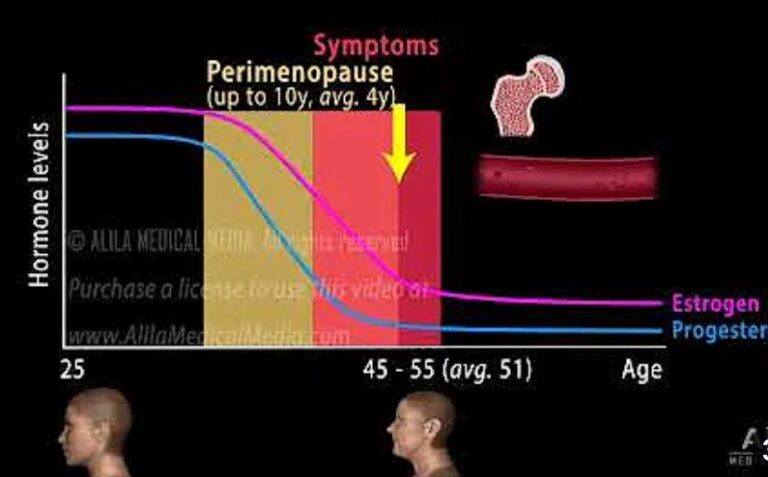Supplements: What it is and Why You Need Them
Today we will be discussing Supplements and why you need them but before we do that we need to understand what are supplements. Remember that you cannot understand what a Supplement is if you don’t have an idea of vitamins
What is Vitamin:
Oxford Dictionary describes vitamins as a natural substance found in food that is an essential part of what humans and animals need to help them grow and stay healthy.
Vitamins are grouped into two categories:
- We have Fat-soluble vitamins are stored in the body’s liver, fatty tissue, and muscles. The four fat-soluble vitamins are vitamins A, D, E, and K. These vitamins are absorbed more easily by the body in the presence of dietary fat.
- We also have Water-soluble vitamins that are not stored in the body. The nine water-soluble vitamins are vitamin C and all the B vitamins. Any leftover or excess amounts of these leave the body through the urine. They have to be consumed regularly to prevent shortages or deficiencies in the body. The exception to this is vitamin B12, which can be stored in the liver for many years.
Some vitamin-like nutrients are also needed by the body such as:
- Choline
- Carnitine
We have so many types of vitamins which will be listed below.
There are 13 essential vitamins. This means that these vitamins are required for the body to work properly. They are:
-
Vitamin A
Vitamin A is a group of organic compounds that includes retinol, retinal, retinoic acid, and several provitamins A carotenoids. It is a fat-soluble vitamin and an essential nutrient for humans, helping your body’s natural defence against illness and infection. Vitamin A is highest in the following meals: liver, fish, eggs, etc.
-
Vitamin C
Ascorbic acid known as vitamin C is a water-soluble vitamin (This means that it dissolves in water and is delivered to the body’s tissues but is not well stored, so it must be taken daily through food or supplements). Vitamin C plays a role in controlling infections and healing wounds, it helps protect your cells against the effects of free radicals. Vitamin A is highest in the following:
- Citrus (oranges, kiwi, lemon, grapefruit)
- Bell peppers.
- Strawberries.
- Tomatoes.
- Cruciferous vegetables (broccoli, Brussels sprouts, cabbage, cauliflower)
- White potatoes.
Vitamin D (also referred to as “calciferol”) is a group of fat-soluble vitamins (you also daily through food or supplements) the most important compounds in this group are vitamin D₃ and vitamin D₂.
It is responsible for increasing intestinal absorption of calcium, magnesium, and phosphate, and many other biological effects. A tablespoon of cod liver oil has a whopping 1,360 IU of vitamin D, you can also get it from Orange juice, and dairy products such as yogurt and milk are good choices, too. So are beef liver, egg yolks, and fortified cereals.
-
Vitamin E
Vitamin E is a fat-soluble vitamin with several forms, but alpha-tocopherol is the only one used by the human body, It acts as an antioxidant, scavenging loose electrons that can damage cells. It also enhances immune function and prevents clots from forming in heart arteries.
- Wheat Germ Oil — 135% DV per serving. …
- Sunflower Seeds — 66% DV per serving. …
- Almonds — 48% DV per serving. …
- Hazelnut Oil — 43% DV per serving. …
- Mamey Sapote — 39% DV per serving. …
- Sunflower Oil — 37% DV per serving. …
- Almond Oil — 36% DV per serving. …
- Hazelnuts — 28% DV per serving
- Abalone — 23% DV per serving
- Pine Nuts — 18% DV per serving
- Goose Meat — 16% DV per serving
- Peanuts — 16% DV per serving
- Atlantic Salmon — 14% DV per serving
- Avocado — 14% DV per serving
- Rainbow Trout — 13% DV per serving
- Red Sweet Pepper (raw) — 13% DV per serving
- Brazil Nuts — 11% DV per serving
- Mango — 10% DV per serving
- Turnip Greens (raw) — 10% DV per serving
- Kiwifruit — 7% DV per serving
-
Vitamin K
Vitamin K plays a key role in helping the blood clot and preventing excessive bleeding which means the human body requires vitamin K for post-synthesis modification of certain proteins that are required for blood coagulation or for controlling the binding of calcium in bones and other tissues
The most common foods with high vitamin K are green leafy vegetables such as kale, collard greens, broccoli, spinach, cabbage, and lettuce.
-
Vitamin B1 (thiamine)
Thiamine helps to turn food into energy to keep the nervous system healthy. Vitamin B1 is an essential micronutrient that your body cannot make for itself, it is found in food and commercially synthesized to be a supplement or medication.
- Fortified breakfast cereals.
- Pork.
- Fish.
- Beans, lentils.
- Green peas.
- Enriched cereals, bread, noodles, and rice.
- Sunflower seeds.
- Yoghurt.
-
Vitamin B2 (riboflavin)
Riboflavin works to reduce oxidative stress and inflammation of nerves, which are contributors to migraine headaches. Lack of Vitamin B2 causes fatigue, swollen throat, blurred vision, and depression. It can affect the skin by causing skin cracks, itching, and dermatitis around the mouth.
Foods high in riboflavin include beef, tofu, milk, fish, mushrooms, pork, spinach, almonds, avocados, and eggs.
-
Vitamin B3 (niacin)
Vitamin B3 helps keep your nervous system, digestive system, and skin healthy. It is an essential nutrient for humans. It can be manufactured by plants and animals from the amino acid tryptophan.
Vitamin B3 is high in red meats (beef liver, pork), tuna fish, salmon, brown rice, peanut, potato, sunflower seed, pumpkin seed, chicken liver, whole wheat bread, and portabella mushrooms.
-
Vitamin B6 (pyridoxine)
Vitamin B-6 (pyridoxine) is a water-soluble vitamin found naturally in many foods, as well as added to foods and supplements. It is very important for normal brain development and for keeping the nervous system and immune systems healthy.
- Beef liver.
- Tuna.
- Salmon.
- Fortified cereals.
- Chickpeas.
- Poultry.
- Some vegetables and fruits, especially dark leafy greens, bananas, papayas, oranges, and cantaloupe.
-
Vitamin B12 (cyanocobalamin)
This is a water-soluble vitamin involved in metabolism, it plays an important role in red blood cell formation, nerve function, and the production of DNA, the molecules inside cells that carry genetic information.
- meat.
- fish.
- milk.
- cheese.
- eggs.
- some fortified breakfast cereals.
-
Pantothenic acid (B5)
Vitamin B₅ is a water-soluble B vitamin that is very important to all animals. Pantothenic acid which is Vitamin B5 helps in the breakdown of fats and carbohydrates for energy, vitamin B5 is critical to the manufacture of red blood cells, as well as sex and stress-related hormones produced in the adrenal glands, small glands that sit atop the kidneys.
- Fortified cereals.
- Organ meats (liver, kidney)
- Beef.
- Chicken breast.
- Mushrooms.
- Avocado.
- Nuts, seeds.
- Dairy milk… etc.
-
Biotin (B7)
It is a water-soluble B vitamin that helps in promoting appropriate function of the nervous system and is essential for liver metabolism as well. Biotin increases cell growth and the maintenance of mucous membranes, which means that it plays an important role in strengthening hair and nails in all animals.
- Beef liver.
- Eggs (cooked)
- Salmon.
- Avocados.
- Pork.
- Sweet potato.
- Nuts, seeds.
-
Folate (folic acid or B9)
Folate commonly known as folic acid is the natural form of vitamin B9, water-soluble, and naturally found in many foods. It can also be added to foods and sold as a supplement in the form of folic acid. Folate helps in the formation of red blood cells and for healthy cell growth and function.
Dark leafy greens such as spinach, kale, collard greens, turnip greens, romaine lettuce, raw cabbage, Brussel sprouts, and broccoli have the highest level of vitamin B9, Just add them to your diet for an immediate folic acid boost.
Now we understand what a vitamin is let’s go into our main topic which is supplements.
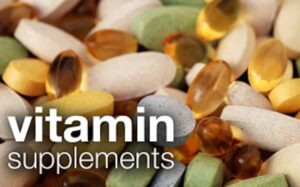
Supplements:
Supplements are vitamins, minerals, and other food concentrates packaged as tablets, capsules, or liquids.
Why You Need Supplements
Supplements are developed to help maintain health in men and women of all ages. It is ideal for those with a hectic lifestyle and they are also used by professional sportsmen/women to help them maintain optimal nutrient levels during training. Supplements are multivitamins, the nutrient levels have been specifically formulated for both men and women, and they often provide more than 100% of the Vitamins recommended daily.
Sport and Exercise :
The presence of Vitamins C and E helps protect against free radicals generated during exercise. Some Companies also include amino acids and ginseng for all-around support.
Hectic Lifestyle:
Most Supplements Contain Magnesium and vitamin B complex for the efficient release of energy from food
Immune System:
They also contain Antioxidants and minerals, including bioflavonoids, which help maintain a healthy immune system.
Reproductive Health:
The content of Zinc and other minerals is particularly important to men’s reproductive health
Energy Levels:
Vitamin C, iron, and copper contribute to normal energy release. Plus folate and pantothenic acid contribute to the reduction of tiredness and fatigue
Immune Health:
Selenium and zinc contribute to the normal function of the immune system
Female Health:
Vitamin B6 contributes to the regulation of hormonal activity. Plus iron which contributes to the normal formation of red blood cells and hemoglobin an important consideration during the monthly cycle
Skin, Hair & Nails:
Vitamin C contributes to normal collagen formation. Collagen is the substance that gives skin its elasticity. Biotin contributes to the maintenance of normal skin. Selenium and zinc contribute to the maintenance of normal hair and nails
All Round Support:
A comprehensive spectrum of micronutrients for all-round nutritional support
I hope this article helps you to understand all you need to know about supplements… THANKS FOR READING
